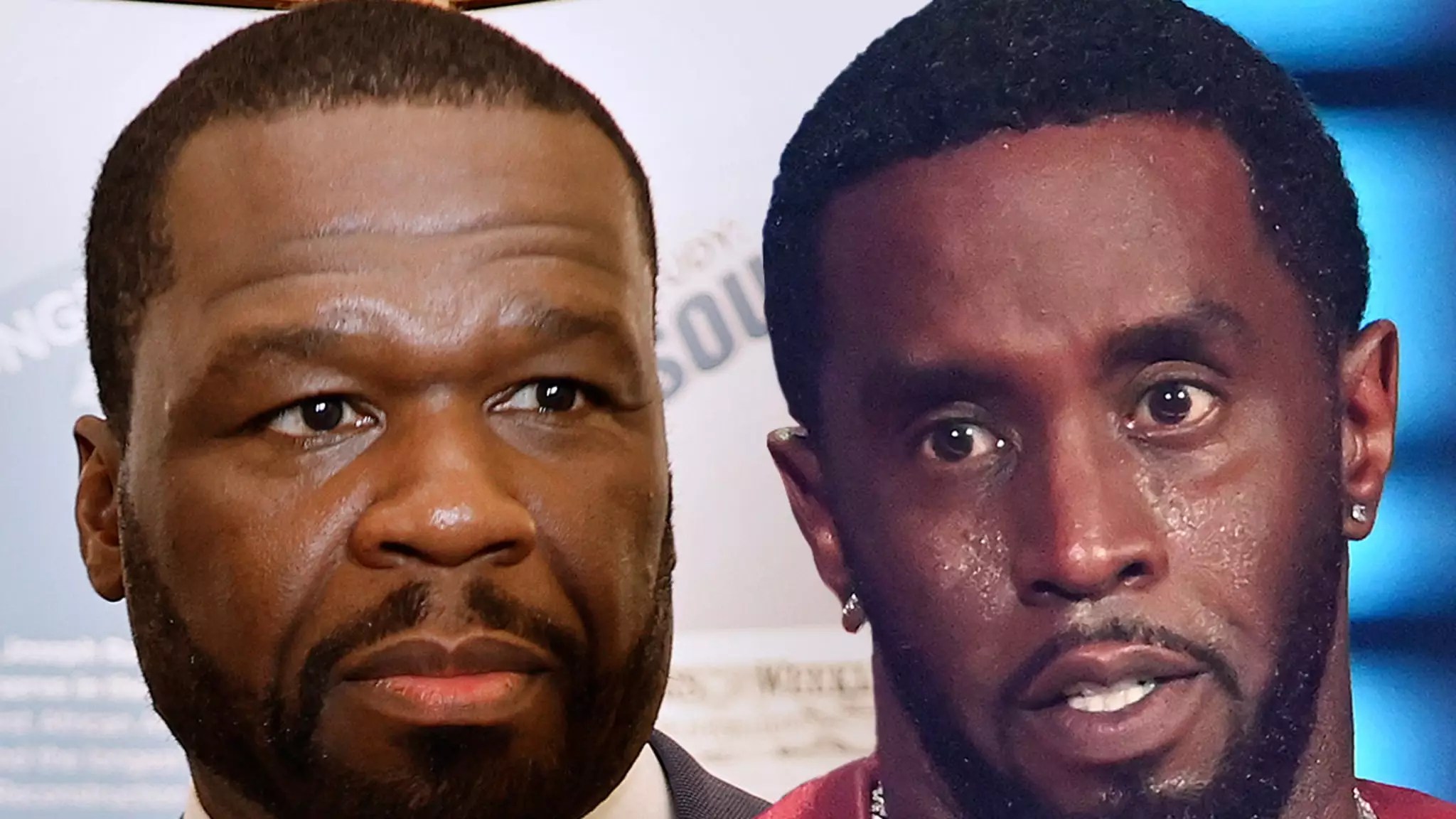In an era where celebrity and politics often intertwine, few narratives illustrate this dynamic quite like 50 Cent’s recent intentions to connect with President Donald Trump regarding Diddy. While some might interpret this as an opportunistic move to sway political decisions on behalf of a friend, I see it as a testament to the undeniable influence celebrities wield in the political arena. It’s fascinating how an artist, with a track record of provocations and bravado, is navigating this complex relationship—not simply as a musician but as a potential intermediary in a significant legal matter.
Clarifying Misunderstandings Ahead of a Presidential Chat
When 50 Cent made waves by expressing his desire to speak with President Trump, the media buzzed with speculation. Some outlets interpreted his remarks as a push to ensure that Diddy remains behind bars, which is a gross oversimplification of his motives. Miscommunication in media narratives often leads to sensationalism, obscuring the underlying complexities. 50 Cent clarified his stance on social media, emphasizing that his purpose is more nuanced: to convey his grievances regarding comments Diddy allegedly made about Trump. This isn’t just a beef between two rappers—it’s a conversation entwined with serious implications for public perception and legal outcomes.
The Interplay of Loyalty and Criticism in Hip-Hop Culture
Diddy’s current legal troubles, especially in the context of serious accusations such as sex trafficking, invite deeper discussions about loyalty and criticism within hip-hop culture. 50 Cent has not shied away from disparaging Diddy, which reflects a broader theme in the music industry where camaraderie is often eclipsed by rivalry. It’s intriguing to see a figure like 50 Cent, who has built his career on provocative confrontations, now wearing the hat of a mediator attempting to pave the way for a dialogue with the president. This reflects an intricate interplay between loyalty and the harsh realities of public life.
The Potency of AI in Popular Culture and Social Commentary
Moreover, 50 Cent’s use of an AI-generated image of himself in a “Free Diddy” t-shirt indicates his awareness of the trending role technology plays in shaping public sentiments. This is an opportunistic blend of humor and advocacy, showcasing the versatility of social media as both a platform for comedic expression and a means of commentary on serious issues. Not only does he tread the lines of sarcasm, but he also embeds significant meaning into these digital expressions, highlighting the surreal landscape of modern celebrity.
Is This a New Era of Influencing Justice?
Finally, the prospect of Trump considering a pardon for Diddy raises essential questions about celebrity influence on the justice system. With Trump recently pardoning figures such as Todd and Julie Chrisley, the landscape for potential pardons becomes more intriguing. While 50 Cent’s intention may simply be a heartfelt attempt to discuss personal views regarding Diddy, the underlying implication cannot be ignored: does celebrity status now have the power to alter the trajectories of legal consequences? The implications are profound, and the conversation is only just beginning.


Leave a Reply